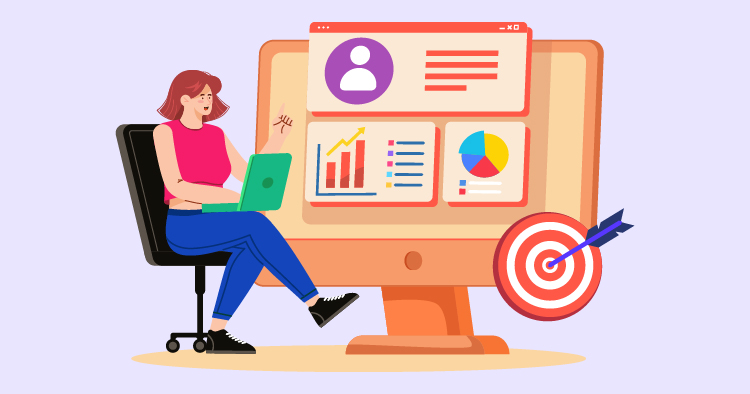Grasping the idea of a local link is vital for businesses aiming to boost their online visibility in a specific area. Local links are links from websites in your area that can significantly influence your position in search engine results and bring local visitors to your site. These links are like a nod of approval from your neighborhood, telling search engines that your business is a respected member of the local scene. We’ll go into why local links matter and share tips on how to find and get more of them to improve your local search engine optimization (SEO) efforts.
Understanding Local Links
Local links are essentially hyperlinks from websites that are geographically close to your business. They’re like digital nods of approval from your neighbors. These links are essential for local SEO because they help search engines see how relevant and significant your business is in a particular area. For instance, when a local food blog talks about a nearby restaurant, it’s like telling search engines, “Hey, this place matters in our local food scene.”
They also build trust with people in your area. A link from a well-known local organization can make your business look good. Plus, these links bring in people who are already interested in what your community has to offer.
You should focus on getting these links if you have a local business. They’re more potent than generic backlinks in local searches. They boost your visibility and help you become a go-to spot in your area.
The Impact of Local Links on Search Rankings
Local links can change your business’s search engine rankings. Search engines use them to determine if your business is a big deal locally. If regional, respected sources link to you, search engines take it as a good sign, and you might climb up in local search results.
This is super important for businesses that count on local customers. If you show up higher when people search for local options, they’re more likely to pick you. This can be a big deal for service providers, stores, and restaurants that need local foot traffic.
Local links can even help you appear in unique search engine spots like Google’s Local Pack or Maps, which can lead to even more local business.
Types of Local Links
A few different kinds of local links can help your business. You can start with local business directories like Yelp. These places list your business and link back to your site, which is good for SEO and makes it easier for customers to find you.
Struggling with Digital marketing? Book Your Free Strategy Session!
- 30-Minutes Session
- Expert Insights
- Data-Driven approach
- Optimized Strategies for Your Goals
Local news websites are also great for links. If they mention your business, it can attract people and make you look more credible. Community blogs that cover local topics can also be an excellent place to get links because their readers want to support local businesses.
Working with other local businesses can also get you links. They might return the favor with a link if you do something for them. And if you sponsor local events or charities, you often get a shoutout and a link online.
Evaluating Your Current Local Link Profile
You have to know what you’re working with to get better at local links. Use tools like Google Search Console to see what links you already have. Look for links from local places and see if they’re any good. You want links from sites that are well-known and relevant.
Ensure you have no broken links or old info that could hurt your SEO. Also, eliminate wrong links that could make search engines think less of your site. Keeping your link profile clean is essential for staying on search engines’ good side.
Look at the local sites that link to you and see if you notice any patterns. This can show you what you’re doing right and where you could do even better. Knowing your current links is the first step to getting more and better ones.
Setting Goals for Local Link Acquisition
It would be best to have clear goals to get more local links. Decide what you want to achieve. Maybe you want a certain number of new links, better rankings, or more people coming to your site from local sources.
Make sure your goals are SMART. For example, you could aim to get ten new local links from essential sites in the next three months. This goal is clear: you can measure it, it’s doable, it makes sense for your local SEO, and you have a deadline.
Keep an eye on your progress and change your plans if necessary. Celebrate the small wins, like getting mentioned by a local blogger or teaming up with a nearby business. With clear goals and a good strategy, you can keep improving your local link profile, significantly improving your search rankings.
Researching Local Link Opportunities
Finding local link opportunities starts with thorough research. Analyze your competitors’ backlinks to see where they’re getting their local links. Tools like Ahrefs, SEMrush, or Moz can help you see the local websites linking to competitors. This insight gives you a list of potential websites to target for your link-building efforts.
Another tactic is to perform local search queries related to your business. Use search terms that potential customers might use to find local services or products, and identify which local sites rank highly. These might include local blogs, news sites, or community portals. Reaching out to these sites for link opportunities can be highly beneficial.
Don’t forget to use social media to find local influencers and organizations. Connect with them to see if there are ways to collaborate for mutual benefit. Engaging with local online communities can also reveal opportunities for guest posts, interviews, or features that can result in valuable local links.
Leveraging Local Partnerships
Building relationships with other local businesses and organizations is a powerful way to gain local links. Start by identifying non-competing businesses in your area and propose a mutually beneficial link exchange. For example, a local gym could share content and links with a health food store.
Another approach is to join local business associations or chambers of commerce. These organizations often have websites with member directories and opportunities for additional exposure, such as guest articles or event listings, which can include backlinks to your site.
Consider supporting local charities or community groups. These partnerships can lead to mentions and links from their websites and press releases, thus boosting your local link profile.
Creating Link-Worthy Local Content
To attract local links, create content that resonates with your local audience. This could be a comprehensive guide to local attractions, a list of top local restaurants, or an analysis of regional market trends. Such content is helpful to readers and likely to be shared and linked to by local websites.
Another idea is to cover local news stories or events with a unique angle relevant to your business. Local media outlets might pick up your content or link to it as a resource, increasing your local online presence.
You can also conduct original research or surveys about your local area and publish the findings. Original data and insights can attract attention from local businesses, media, and educational institutions, leading to high-quality local links.
Local Events and Sponsorships
Participating in or sponsoring local events is a great way to promote your business and earn local links. When you’re involved in local events, you often get a mention on the event’s website, social media, and promotional materials, which can include valuable backlinks.
Sponsoring local sports teams, cultural events, or charity fundraisers can also lead to links from the organizations’ websites. Make sure to negotiate link placement as part of the sponsorship agreement.
Struggling with Digital marketing? Book Your Free Strategy Session!
- 30-Minutes Session
- Expert Insights
- Data-Driven approach
- Optimized Strategies for Your Goals
Host your local events, workshops, or seminars. Promote these events online and encourage local attendees and businesses to share and link to your event page, boosting your local link profile.
Using Local Directories and Citations
Local directories and citation sites are crucial for building local links. Ensure your business is listed on reputable local directories, such as Yelp, Yellow Pages, and Google My Business. Accurate and consistent listings can improve your local SEO and increase organic links.
When listing your business, complete the profiles, including a link to your website. This provides direct backlinks and helps customers find you more easily.
Check your listings regularly for accuracy and update them as needed. This includes managing reviews and engaging with customers, which can enhance your reputation and lead to more organic local links.
Engaging with Local Online Communities
Getting involved with local online communities can significantly boost your local link-building strategy. Look for forums, social media groups, and other platforms where people from your area gather to talk. By actively participating and sharing helpful information, you become seen as a trusted source, which can lead to natural link opportunities.
It’s essential to contribute in ways that resonate with the community. Discuss local events or issues to become more visible and trusted. Add your business details to your profile or signature if allowed, as this can lead to more traffic and links.
Also, think about organizing or sponsoring local events and sharing them with these online groups. These can be anything from educational workshops to charity events. This helps with community engagement and encourages local websites to link to your event, giving you valuable links. After the event, please stay connected with attendees online to enable them to share their experiences, which can lead to more links.
Outreach Strategies for Local Link Building
Reaching out is vital to getting local links. Please list regional websites, like business directories and local news sites, and send them personalized emails explaining the benefits of linking to your site. Please keep your messages short, friendly, and clear about what’s in it for them.
Building personal connections can also help. Go to local networking events and meet people face-to-face. This can make them more open to your requests for links later on.
You can also offer something valuable in return for a link, like a guest post or a free product for review. Ensure any exchange is relevant and beneficial to both sides, and always be transparent.
Final Thoughts
Having looked into local links, I see they’re a crucial resource for businesses wanting to lead in local search rankings. To build a solid local link profile, you need a well-thought-out approach, dedication, and active involvement in the community. Prioritize the quality of your links and nurture connections with local figures. This way, you can establish a solid local link network that boosts your SEO and strengthens your standing in the community. Getting local links is continuous, but online visibility and trust benefits are significant.



